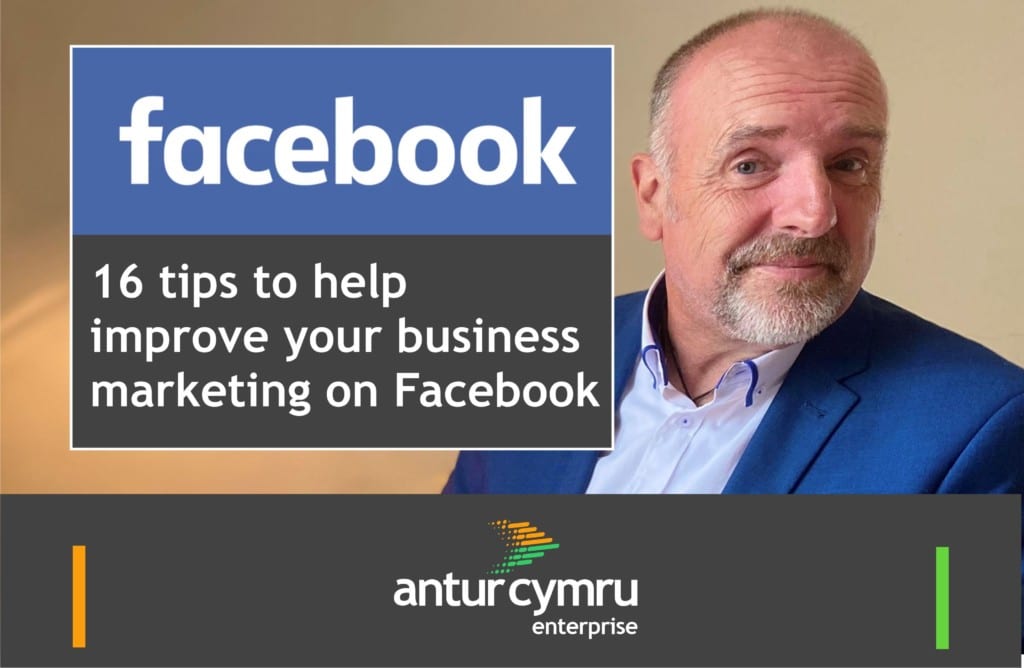Facebook seeks to deliver the content its users will enjoy most and find the most relevant, so your posts must reflect what users want to read. Organic posts have declined and this now presents a particular challenge for businesses who do not have the same budgets as larger advertisers to pour into paid posts to compete in their particular market. However, all is not lost!

Here are 16 tips for finding the right audience and offering up content and experiences the audience will value, even with a limited budget.
- Post with Intent:
Businesses need to be mindful about what is getting posted or is trending, putting up a post hoping it will hit a few people will not result in effective marketing. As a business, you need to post with intent, firstly by matching your content to your key products and services whilst making your posts interesting and engaging. The decision is then – Do you boost it with a budget or not?
Take advantage of ‘Facebook Insights’ as these will help you as a business determine what provides your page with high engagement and where you may need to adjust content. Using ‘Facebook Insights’ will naturally develop a good posting rhythm and content mix.
2. Try to blend in:
Ensure your niche is getting portrayed in your branded content, think out-of-the-box, offering valuable information with a hint of humour for example may match your brand voice or style. Exploring your unique content and style will attract a bigger audience and engagement to generate a more significant organic reach for your posts and your page.
Take this as a business example:
A business uses Facebook to post a visual advertisement, with a significant design aspect, coupled with a link to buy the advertised product. However, the performance of the posts shows below average results as it strongly suggests a promotional angle. On the other hand, the identical business posts again but purely for entertainment and achieved 15 times the interaction.
This suggests that Facebook’s algorithms are likely to determine the overtly promotional approach on the first post and not on the second; because of this, the second post reached a much larger audience and accumulated a more extensive engagement, resulting in the business’s brand becoming more noticeable. The marketing technique in this instance was more valuable and practical than that of a sales approach.
3. Get into the habit of using a ‘Content Calendar’:
To plan effectively, implement a content calendar. It is the most effective way to maximise your efforts while minimising the time spent on marketing. Calendars allow you to organise and plan content at one time, and by using the Facebooks scheduling tool, you can schedule it and proceed with other key tasks at hand. However, don’t forget about your Return on
Investment (ROI) and measuring the performance of your posts. Monitoring your insights and performance and focus on community management (reply to comments, acknowledge shares and tags) will allow your calendar to become a key driver in improving your effectiveness and budget accountability.
4. Optimise your profile page:
Facebook tabs serve as navigation for your business page and it is crucial to ensure that the tabs are organised and improve the audience’s ability to access information about you.
Facebook allows you to restructure the order of tabs, this includes adding and removing tabs that you may feel are irrelevant or not appropriate. Doing so provides your audience with a smoother and easier experience.
These are simple and seemingly obvious tweaks to your pages and maybe getting overlooked, these can improve the audience experience. Provide the audience with the information they need, don’t make them look for it.
5. Explore establishing a ‘Community Page’:
Some businesses find ‘community pages’ often produce a more organic reach than commercial business pages on Facebook. The ability to create a private page where individuals get added by-invitation-only develop a sense of importance. These are also excellent places to maintain relationships with the audience with a more one on one approach.
6. Explore creating a ‘Facebook Group’:
Explore the merits of creating a Facebook group for your business – but not for promotional purposes. Instead, create a platform allowing customers to exchange information on products/services related to your business. Find a niche within your customers’ interests that will enable them to connect within the group. Providing this space to join, as the group grows, you can use content from the group on your business pages to create relevant articles.
However, do not use this group to promote sales or calls to action, that is the purpose of your business page.
7. Be strategic about your group name:
Thinking out-of-the-box is excellent way to explore a way to stand out from your competitors, but obscure posts and content will not get you the members to grow your audience when it comes to naming your group. Think of a group name that people will search for on Facebook; this increases the likelihood of finding the group. Facebook groups are applicable for any business in any area/industry by raising awareness of the brand, engagement across all platforms is likely to increase your reach.
8. Keep adding to your Facebook story:
This may be obvious, but Facebook stories allow a more casual approach to posting on your page. They do not necessarily relate to business-specific news; your stories could range from fun quick-fire polls to exciting links. The purpose is to keep your audience engaged and increase clicks on your profile, generating a higher organic reach on Facebook.
9. Don’t get obsessed over vanity metrics:
Smaller businesses should focus on the bottom lines of their posts rather than ones that make them temporarily feel good. Try not to spend hours on putting the best graphics and texts together in one post. Providing the context and brand is easily understood and recognised, do not waste valuable time on not so beneficial aspects. It’s a case of quality leads over the number of views.
10. Consider using Facebook for customer service:
Take advantage of the Facebook automated replies option and use this to meet customer expectations. Should a customer service issue arise, use Facebook to make them feel heard.
Audiences expect replies within minutes, and Facebook is your ideal on-the-go platform to use when wanting to solve an issue or even thank a customer for a positive review.
11. Would posting with a small budget work?
Consider adding a paid budget – even a small one – to test extended reach. Experiment with different content, messaging, imagery and times of the day to see what works for your business. Try experimenting with a small budget and be specific with a target audience of customers and look at a specific geographical reach and measure your results against views, likes, shares and actual enquiries.
Paid posts are a way of tailoring who sees your post and allows a more targeted approach to your marketing. Paid posts work best when they look no different to regular Facebook posts; using a video or image is proven to work better.
12. Narrow your audience:
The objective is to narrow down your audience, test the demographic areas. Imagine it as if you are running a TV advert and testing in different towns; you have to find what works best for your business.
13. Consider ‘boosting’ posts:
Facebook’s boost post (or sponsored post) feature allows users to expand the audience for their posts exponentially and target highly engaged and relevant prospects—with a minimal budget.
This also helps you recoup lost organic reach from ongoing algorithmic changes in Facebook and increase your businesses visibility that ultimately generates traffic to your content and purchases for your products/services.
Think of a post where you believe you’ve promoted a key product or service, but you’ve had very few reviews. Try boosting this to a specific target audience in say a geographic area, -this more targeted approach tends to get a better and more measurable response.
14. Explore the Facebook ‘Product Catalogue’:
Using Facebook’s product catalogue tool provides a rich browsing experience for shoppers, encouraging greater product discovery and engagement. Not only that, but the catalogue tool is also perfect for implementing dynamic re-targeting and connecting an existing catalogue from another platform such as google and increases traffic across more than just one of your platforms.
15. When posting a video consider Facebook Custom Audiences to re-target viewers:
One of the most consistently effective strategies is using video ads for re-targeting audiences, by developing a series of videos based on your offering and creating custom audiences for your ads based on how long people have watched them.
Take this as an example:
A dentist runs a video advertisement to a new audience talking about how essential teeth cleaning is. After the teeth cleaning video ran for a few days, he set up a re-targeting ad that offers a discounted teeth cleaning service to new patients. However, the dentist can show the ad only to people who have watched over 50% of the teeth cleaning video.
That way, he knows they are interested in teeth cleaning already, so his ad will be much more relevant and practical. Whereas if he were to serve those discount teeth cleaning ads to a new audience, the engagement rate on the offer would be much lower.
16. Create a ‘Saved Audience’:
Unlike Custom Audiences, Saved Audiences are those you configure through the standard Facebook Ads targeting options. Instead of configuring your audience each time you create an ad or want to boost a post, you can create saved audiences that you can use each time you start an ad campaign.
This is an excellent option if you plan to target similar audiences each time you create specific ads or boost posts from your page; it will save you a lot of time and money guessing what might be a success rate.
Do you need help with your marketing strategy and communications and refining or reinventing your online and social media platforms?
For further information, click on the following link:
For Business IT Support Services click on the following link:
Or enquire about our Marketing Services for Welsh Businesses by speaking to Dai Nicholas,
our Marketing Manager now on 07736542280.




